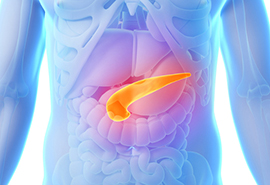
Gestational Diabetes
Managing gestational diabetes
Gestational diabetes is diagnosed during pregnancy when your body cannot cope with the extra demand for insulin production resulting in high blood glucose levels. Gestational diabetes is managed by monitoring blood glucose levels, adopting a healthy eating plan and performing regular physical activity. Effective management of gestational diabetes will reduce the risk of complications during pregnancy and the birth of your baby.
Your healthcare team including your doctor, specialist, dietician and Credential Diabetes Educator, can help you with blood glucose monitoring, healthy eating and physical activity.
There are three basic components in effectively managing gestational diabetes:
• monitoring blood glucose levels
• adopting a healthy eating pattern
• physical activity.
Gestational diabetes can often initially be managed with healthy eating and regular physical activity. However, for some women with gestational diabetes, insulin injections will be necessary for the rest of the pregnancy. Approximately 10 – 20% of women will need insulin; however, once the baby is born insulin is no longer needed. This is safe for both you and your baby.
After the baby is born, gestational diabetes usually disappears. A special blood glucose test (Oral Glucose Tolerance Test) (OGTT) is performed six weeks after delivery to ensure that blood glucose levels have returned to normal. However, women who have had gestational diabetes have an increased risk of developing type 2 diabetes later in life and should be tested for diabetes at least every 2 – 3 years.
Can gestational diabetes affect my baby?
If gestational diabetes is not well looked after (blood glucose levels remain high) it may result in problems such as a large baby, miscarriage and stillbirth. A large baby can create the risk of injury at delivery, caesarean delivery, forceps delivery and a need for the baby to be looked after in special care until the glucose level stabilises after delivery. Other complications may include pregnancy loss and premature delivery. If any problems occur, the hospital will care for you and your baby.
Monitoring blood glucose levels while pregnant
It is important that women monitor their blood glucose levels at home through daily blood tests to check that management of diabetes has the expected effect of normalising your blood glucose levels. Your Credentialled Diabetes Educator can show you how and help you understand your blood glucose patterns. This is to ensure appropriate treatment can be administered and changed as necessary.
Your doctor or Credentialled Diabetes Educator will tell you what blood glucose levels to aim for. Blood glucose level targets are between 4 to 6 mmol/L (fasting).
If healthy eating and physical activity cannot control gestational diabetes, insulin injections will be necessary for the rest of the pregnancy. Blood glucose lowering tablets are generally not used in pregnancy.
Eating well with gestational diabetes
An important part of managing gestational diabetes relates to diet. Following a healthy eating plan will assist in:
• Managing blood glucose levels within the target range advised by your doctor
• Providing adequate nutrition for you and your growing baby
• Achieving appropriate weight changes during your pregnancy.
It is advisable to see an Accredited Practising Dietitian to work out a meal plan that is appropriate for mum and the growing baby.
Guide for healthy eating during pregnancy
Women with gestational diabetes are encouraged to:
• Eat small amounts often and maintain a healthy weight
• Include some carbohydrate in every meal and snack (e.g. Multigrain bread, bulgur, pasta, potato, lentils, chickpeas, beans)
• Choose foods that are varied and enjoyable that provide the nutrients you especially need during pregnancy. This means foods which include: calcium (e.g. Milk and cheese), iron (e.g. Red meat, chicken and fish), folic acid (e.g. Dark green leafy vegetables lightly cooked, low in fat, particularly saturated fat(e.g. use oils such as canola, olive and polyunsaturated oils and margarines and use lean meats such as skinless chicken and low fat dairy foods)
• High in fibre
• Avoid foods and drinks containing large amounts of sugar
• Choose Basmati or Doongara rices – they have a lower glycaemic index and will help you to stay fuller for longer.
• See a dietitian who can provide expert advice on the proper nutrients for you and your baby, as well as helping you make healthy food choices


